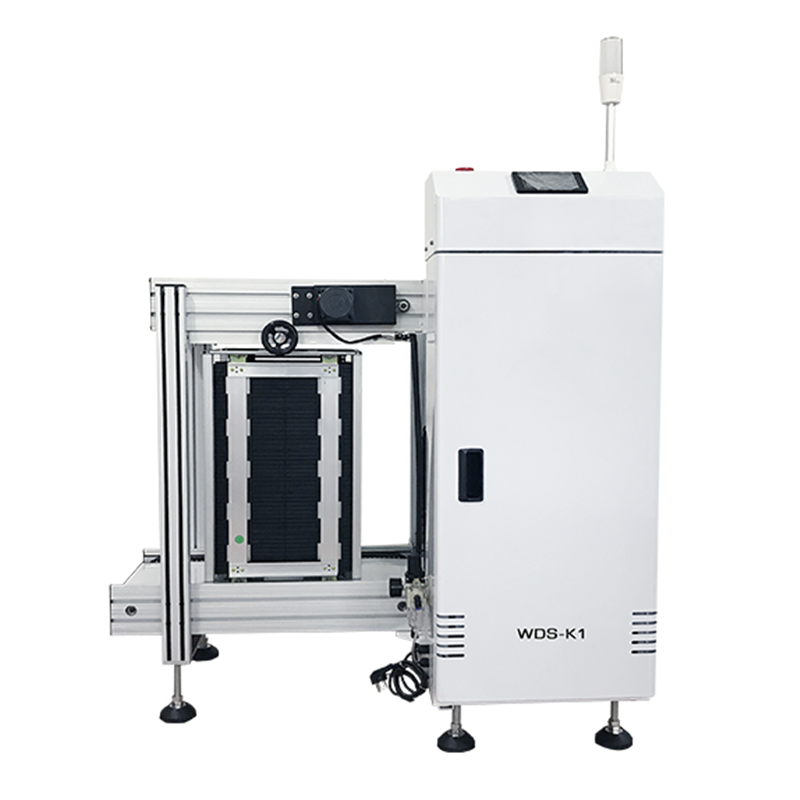Error de formato de correo electrónico
emailCannotEmpty
emailDoesExist
pwdLetterLimtTip
inconsistentPwd
pwdLetterLimtTip
inconsistentPwd


Harmony in Circuits: The Evolution of SMT PCB Printing Machines
Introduction:
In the realm of electronics manufacturing, the journey of SMT PCB solder paste stencil printing has been nothing short of transformative. From the early days of manual processes to the current era of highly sophisticated circuit board printing machines, the evolution has been profound. This article delves into the advancements in technology, exploring the intricate dance of components on the manufacturing stage.
Historical Milestones:
In the nascent stages, artisans played a crucial role in the meticulous process of SMT PCB solder paste stencil printing. The advent of automated solutions marked a turning point. Circuit board printing machines, equipped with precision tools, ushered in an era of efficiency and accuracy. The integration of robotics and automation not only streamlined production but also significantly reduced the margin for error.
Global Perspectives on Stencil Printing Machines:
As we traverse the landscape of circuit board manufacturing, it becomes evident that the evolution of stencil printing machines is not limited to a singular geographical domain. China, with its prowess in electronics manufacturing, has made significant strides. The synthesis of technology and manufacturing expertise has propelled China into a global hub for the production of advanced SMT PCB solder paste stencil printing machines.
Technological Innovations:
The heartbeat of this evolution lies in the technological innovations that continue to shape the industry. Precision control systems, akin to the maestros directing an orchestra, orchestrate the delicate dance of solder paste application. The advent of smart manufacturing has brought forth a new era where machines communicate seamlessly, optimising the entire production chain.

Interplay with Industry 4.0:
The integration of stencil printing machines into the broader framework of Industry 4.0 is a testament to the interconnectedness of modern manufacturing. The symbiotic relationship between IoT devices and circuit board printing machines ensures real-time monitoring and data exchange. This not only enhances efficiency but also lays the foundation for predictive maintenance, minimising downtime.
Case Studies and Success Stories:
Examining successful implementations of these advanced technologies provides insights into their practical benefits. Companies leveraging state-of-the-art SMT PCB solder paste stencil printing machines have witnessed remarkable improvements in yield and product quality. The marriage of technology and application expertise is evident in these success stories.
Quality control measures:
Maintaining stringent quality control measures is paramount in the world of electronics manufacturing. Stencil printing machines adhere to international standards, ensuring that the solder paste application is uniform and precise. The delicate balance between speed and precision is achieved through continuous monitoring and adherence to established quality benchmarks.
Environmental Considerations:
Beyond the technological marvels, a conscientious shift towards environmentally friendly practises is discernible. Manufacturers are increasingly adopting lead-free soldering practises in line with global sustainability goals. The evolution of stencil printing machines is not only about efficiency but also about minimising the environmental footprint of electronics manufacturing.
Conclusion:
In conclusion, the evolution of SMT PCB solder paste stencil printing has been a multifaceted journey. From the artisanal touch of early craftsmen to the precision of modern circuit board printing machines, each phase has contributed to the current landscape. As we gaze into the future, the integration of diverse perspectives and continuous technological innovation promises an exciting trajectory for the manufacturing industry. The dance of solder paste on circuit boards continues, propelled by the harmonious interplay of technology, expertise, and a commitment to quality.

